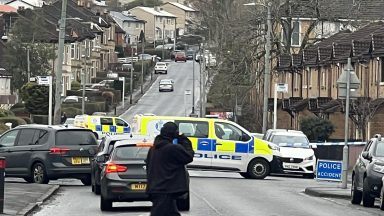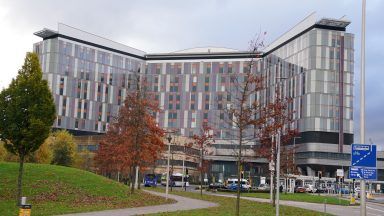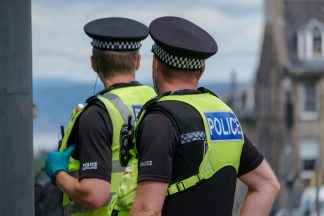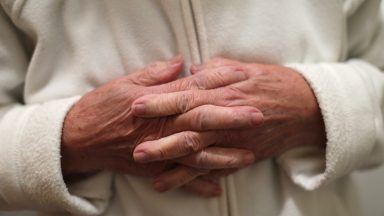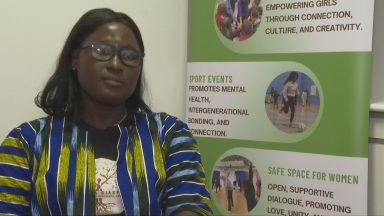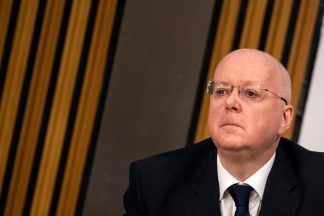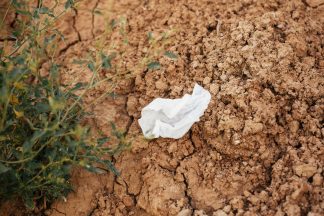David Scott, who has died at the age of 83 following a short illness, was a colossus of Scottish journalism.
His career would see him cut his reporting teeth as a teenager on the Edinburgh Evening Dispatch before earning a formidable reputation at the Scottish Daily Express. From newspapers, he effortlessly transitioned to the world of television.
He joined BBC Scotland in 1968 where his career and status would catapult ever upwards before joining Scottish Television in 1986 as controller of news and current affairs. Possessed of craggy features and a gravelly voice, he was the very embodiment of natural authority.
When added to a copy boys’ enthusiasm to find out what was going on in the world, the pursuit of the story would see him amass a contacts list ranging from criminals to police officers, lawyers and judges, politicians and celebrities.
David Scott’s word was not only his journalistic bond but substantially defined the essence of his character. He recognised that trust is the basis of any pursuit to get the story.
That granite hard belief in the primacy of honesty easily enveloped the relationships with friends, who recognised a man of unimpeachable probity. His reputation was forged in breaking stories. They saw the light of day because at some point, someone decided to trust David Scott.
He had a keen sense of mischief, which helped drive his mission to puncture wrongdoing. If he had a reporting philosophy it was to make a nuisance of himself in the interest of exposing facts that people had a vested interest in keeping out of the public eye.
If something wasn’t right he would set off with his armoury of notebook, pen and television crew and a series of questions designed to expose people and institutions up to no good. Scott was not given to circumlocution. His style relied on short, to the point questions. ‘Why?’ This would be followed up with: ‘Yes, but why?’
And then: ‘You haven’t told me why?’ Scott’s skill was to see the story and get to the heart of it in a matter-of-fact way. In newspapers, he was around in the days of mass circulation, when skulduggery was at the benevolent end of behaviour designed to scoop a rival.
It was an era of meeting contacts in smoky pubs, eliciting information after the consumption of gargantuan quantities of alcohol and even occasionally winkling information over a good dinner to help bloat an already fat expenses claim.

At The Scottish Daily Express he was central in securing an interview with Walter Scott Ellis who, in 1961, walked free from the High Court – the charge of the murder of a Glasgow taxi driver being found not proven.
He bundled Scott Ellis from the throng around the court and into the high speed getaway car, only to find out it belonged to the rival Daily Record newspaper.
He broke the story of Freddie Cairns, who confessed to the murder of a Barlinnie inmate having been acquitted of the killing of Alexander Malcolmson, when both were in Barlinnie prison.
The story caused an uproar.
He got a taped interview with Archibald Hall, known as The Butler, in which Scott was told of the details of five murders.
In broadcasting, he proved remarkably versatile.
He moved from crime to celebrity interview without a hint of changing style. When Paul McCartney was tried for possessing cannabis in 1973, Scott asked him about his interest in horticulture. The exchange, outside a court in Campbeltown was broadcasting gold.
There is a journalistic cliche that reporters ask the questions the public want answered. That’s actually a myth but in David Scott’s case it was invariably always true.
At the BBC, he became a founding member and later occasional presenter of Reporting Scotland.
He broke numerous stories in the crime cause celebre of the 1970s, as well as the jailing of Glasgow safe-blower Paddy Meehan for the murder of Ayr pensioner Rachel Ross in 1969.
After a high profile campaign, Meehan received a Royal Pardon in 1976. When he was released from Peterhead prison, Meehan was whisked to a hotel via helicopter to avoid a chasing pack of journalists. David Scott got his exclusive.
In 1979, Scott was appointed deputy news editor of The Daily Record. He then joined The Sunday Standard when it launched in 1981, heading up the investigations unit.
The paper folded in 1983 and he returned to the BBC. Although eschewing any notion of celebrity – Scott was first, foremost and last a journalist – BBC bosses realised they had a prized asset whom the audience paid attention to with an extra sense of alertness and anticipation.
He anchored Reporting Scotland, hosted the radio phone-in “Call David Scott” – which proved a winner with listeners – and he continued to make a nuisance of himself in the public interest.
At the now equivalent of the Scottish BAFTAs, he, along with director Scott Ferguson and presenter Jimmy Reid, won an award for a documentary (The System Versus Andrew Kay) that told of the struggle for justice of a boy from Troon, whose deafness had been caused by an overdose of penicillin when in childhood.
David Scott’s career had one more exciting chapter. In 1986, he was head hunted by Gus Macdonald to head up the news and current affairs output at Scottish Television.
At STV he turned the department into a serious outfit. It had drifted into an era of soft sofas and even softer stories. Scott led an exodus from Queen Margaret Drive that would see Blair Jenkins, Scott Ferguson and Jon Kean defect to the commercial sector.
The result was a razor sharp focus on stories that mattered to people. Politics was refreshed with the addition of Margo MacDonald. Upper Clyde Shipbuilders hero and friend Jimmy Reid made documentaries. Programmes like Scottish Women and Scottish Assembly were pioneering.
BBC doyen Archie Macpherson anchored Sport in Question in another nod to innovative thinking. Most importantly, he oversaw Bob Tomlinson’s expose of Anton Gecas as a Nazi war criminal, a story that led to the War Crimes Act. STV bristled with great stories and even greater programmes on David Scott’s watch.
When he moved upstairs to another executive position his days would prove to be numbered. He left STV in 1993 in what was to prove his journalistic swan song.
He was only 53. His legacy still defines STV News to this day. Job offers invariably came and to the astonishment of some he would remain retired for the next 30 years.
That retirement was defined by frequent holidays and great excursions in the company of wife Liz and the wider family.
He was a near permanent figure in the hostelries of Glasgow’s West End and was a fantastic lunch companion, where his astonishing recall for stories of the past transported his companions back to another era.
He never embellished a story or over-exaggerated his role in it. He kept up to date with everything and if you were working on something that interested him, you got a genteel interrogation and the inevitable question that unlocks the story: Why?
David Scott was a brilliant reporter and an exacting but fair boss. He was a family man, and a man of many friends, contacts and acquaintances.
Professionally, he was a giant in the age in which he operated, that bygone world of proper scoops, whether in print or broadcast. David had a perceptible presence, even when he was not speaking.
His stature, anchored in the brilliance of his career, was elevated by the warmth of his ever-curious personality. Those privileged to have known it, will never forget it.
He is survived by his wife Liz and by sons Gary and Douglas.
Bernard Ponsonby served as STV’s Special Correspondent from 2019 to 2024 and prior to that was STV’s Political Editor for 19 years, having joined the station in 1990.
Follow STV News on WhatsApp
Scan the QR code on your mobile device for all the latest news from around the country


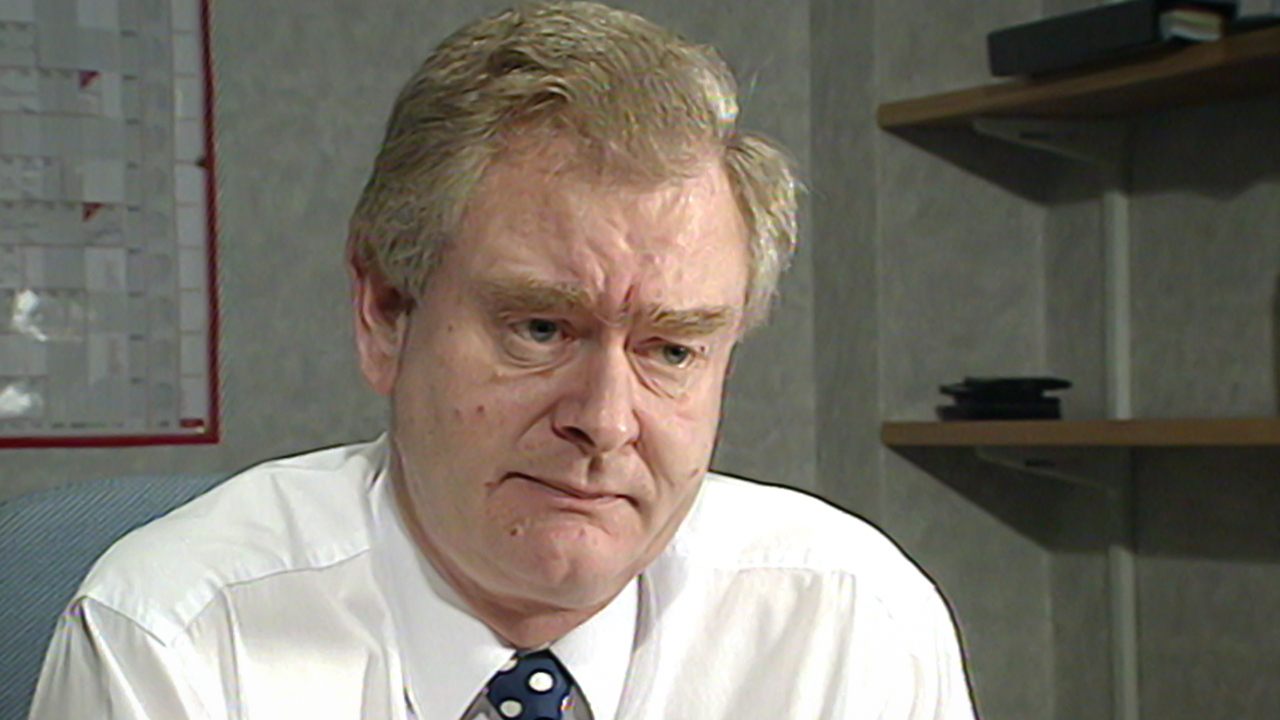 STV News
STV News





